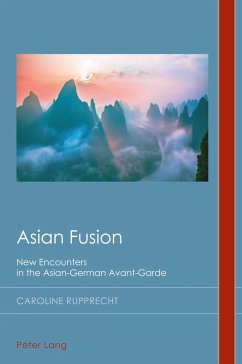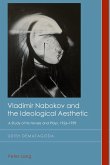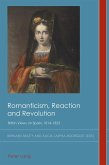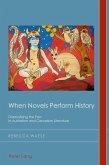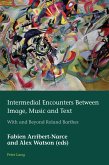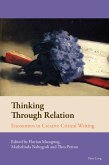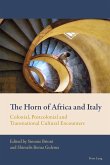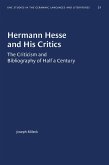«Rupprecht takes an important ethical stance and aims to create a discursive space and theoretical framework for racism against East Asians. [...] Rupprecht's call for recognizing that German minorities - Jews, Blacks, or Asians - have 'the right to belong' is especially urgent at a moment when the New Right is on the rise.» (Qinna Shen, Monatshefte, 113.2, 2021)
«Rupprechts gelungene Kapitel-Aufteilung in Parallel-, Konvergenz- und Diskordanzbewegungen entspricht folglich dem Kompositionsprinzip der Fuge, jeder Teil ist kontrapunktisch in 'call-and-response' strukturiert. [...] Entscheidend ist allerdings, dass Rupprechts Vorgehensweise maßgebend zu einer vom Nationalterritorium losgelösten, 'kosmopolitischen' Literaturgeschichte beiträgt.» (Linda Koiran, The German Quarterly, 93.4, Fall 2020)
«Whereas considerable asymmetries in magnitude between categories of 'the German' and 'the Asian' might intimidate, Rupprecht crafts focused and engrossing sets of literary and artistic, intergenerational and interethnic dialogues to limn resources for (re)imagining integrative possibilities amid existing (East) Asian German cultural connections.» (Matthew D. Miller, Symposium: A Quarterly Journal in Modern Literatures, 75.4, 2021)
«Asian Fusion is a remarkably original book that delineates an exciting new field: Asian-German cultural studies. Using an innovative call-and-response model, Rupprecht records the responses of contemporary Asian-German writers to the
«In Asian Fusion, Caroline Rupprecht ingeniously pairs three postwar German authors who engaged with Asia with three award-winning Asian-German writers, constructing compelling intergenerational dialogues between Sebald and Tawada, Weiss and Pham, and Beuys and Kim. Taking the Shoah as a point of departure and a point of reference, the book shoulders the intellectual as well as ethical responsibilities of addressing racism in Germany. A great read and a major contribution to Asian-German Studies!» (Qinna Shen, Chair and Associate Professor of German, Bryn Mawr College)
This book contributes to a historically evolving conversation about immigration as a facet of globalization in the European context. Focusing on literary and artistic works from the post-World War II era, the author uses a «call-and-response» structure - as in African-American slave songs, Indian kirtans, and Jewish liturgy - to create a series of dialogues between Asian-German authors, including Yoko Tawada, Pham Thi Hoài, and Anna Kim, and an earlier generation of German-speaking authors and artists whose works engaged with «Asia,» including W. G. Sebald, Peter Weiss, and Joseph Beuys.
Considering the recent successes of the New Right, which have brought about a regression to Nazi anti-Semitic discourses grounded in the equation between Jews and «Orientals,» the author advocates a need for solidarity between Germans and Asian-Germans. Using «fusion» as a metaphor, she revises the critical paradigms of Orientalism and postcolonial studies to show how, in the aftermath of the twelve-year Nazi dictatorship, Germany has successfully transformed itself into a country of immigration - in part due to the new and pioneering Asian-German voices that have reshaped the German-speaking cultural landscape and that are now, for the first time, featured as coming together in this book.
Dieser Download kann aus rechtlichen Gründen nur mit Rechnungsadresse in A, B, BG, CY, CZ, D, DK, EW, E, FIN, F, GR, HR, H, IRL, I, LT, L, LR, M, NL, PL, P, R, S, SLO, SK ausgeliefert werden.
«In Asian Fusion, Caroline Rupprecht ingeniously pairs three postwar German authors who engaged with Asia with three award-winning Asian-German writers, constructing compelling intergenerational dialogues between Sebald and Tawada, Weiss and Pham, and Beuys and Kim. Taking the Shoah as a point of departure and a point of reference, the book shoulders the intellectual as well as ethical responsibilities of addressing racism in Germany. A great read and a major contribution to Asian-German Studies!» (Qinna Shen, Chair and Associate Professor of German, Bryn Mawr College)
«... Rupprecht takes an important ethical stance and aims to create a discursive space and theoretical framework for racism against East Asians ... Rupprecht's call for recognizing that German minorities - Jews, Blacks, or Asians - have 'the right to belong' is especially urgent at a moment when the New Right is on the rise.» (Qinna Shen, Monatshefte, Vol. 113, No. 2, 2021)

